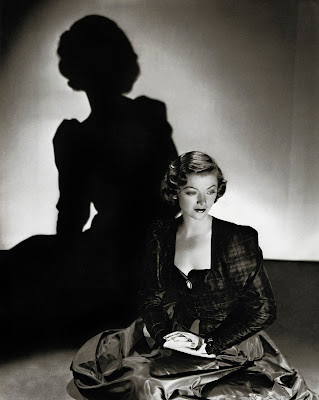Starring: Lowell Sherman, Mary Astor, Anthony Bushell, Nance O'Neil, Robert Warick, Gilbert Emery, and Alan Roscoe
Director: Lowell Sherman
Rating: Seven of Ten Stars
The kindhearted and reluctant king of a small nation (Sherman) is forced to start weilding his power when power-hungry and corrupt ministers in his government (Roscoe and Warick) bring the country to the brink of revolution and concoct a scheme to marry off the king's daughter (Astor) to the prince of a neighboring kingdom.

"The Royal Bed" is an interesting look at the ideal of what members of a noble or royal class should be like. Lowell Sherman's down-to-earth King Eric VIII may want to do nothing more with his time than play checkers with his butler, but when push-comes-to-shove, he steps up to his responsibilities and takes charge. He is also willing to sacrifice his personal happiness for the inherited responsibilities that come with his title and he is willing to put the safety and security of the people ahead of his own.
The same can be said Eric's shrewish wife (effectively played by Nance O'Neil), although her acceptance of the burden of royalty at the expense of personal happiness has caused her to become bitter and she takes her frustrations out on her family and servants... although, ultimately, like her husband, she puts the needs of the country ahead of her own. (Her bitterness causes her to constantly demand respect and obedience from those around her, and this causes her to ally herself with elements in her kingdom that do not have the best interest of the people at heart.)
Finally, the film contrasts King Eric against the worst kind of nobles, the ones who feel entitled to whatever they want, whenever they want, and who are more interested in expanding their own power than what is good for the people they lead and government. In the end, the king is able to outmaneuver them because he is in touch with the people and because he understands not only how government is supposed to function, but because he understands his place in it.
All in all, it's a nice little fantasy, and I'm sure there would be fewer revolutions in the world if royals were like King Eric and his family.
On the acting front, the two leads--Lowell Sherman and Mary Astor--to their usual fine jobs. Sherman's style isn't quite as modern as I've observed it to be in other films, but he shows a good sense of comic timing. No one in the cast embarrasses themselves, but they underscore the stage-play feel of this movie far more obviously than Astor and Sherman. (In fact, I doubt much was changed in order to adapt this film from the play it was based on; you can even tell where the acts break.)
Speaking of the script, it's a fun and breezy little effort that actually put me in mind of Marx Brothers movies like "A Day at the Races". If you were to remove the Marx Brothers' slapstick set-pieces and musical numbers from those films, you'd be left with farces featuring the same tone and pacing as "The Royal Bed".
If you enjoy classic farces, I think this film is worth seeking out. The copy I viewed had some audio problems beyond the usual--such as sudden and inexplicable changes in volume--but with a film this old and neglected, there aren't going to be many options around. (I screened the one issued by good old Alpha Video.)





















.jpg)






.jpg)
